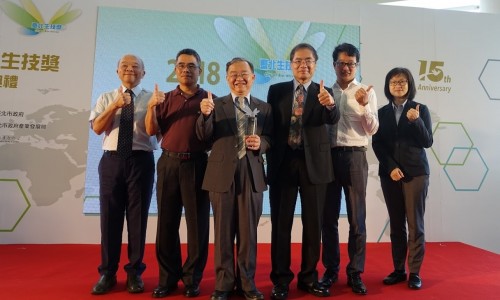2018 Taipei Biotech Award Ceremony
HLB has in-licensed the novel ENO1 technology from NHRI and DCB. NHRI signed up for the competition for Technology Transfer Award at the 2018 Taipei Biotech. The technology transfer of ENO1 stands out in the fierce competition and won the Gold Medal.
The ENO1 technology was initially co-developed by NHRI and DCB. It is a plasminogen receptor and has a unique Mechanism of Action (MOA). Experiments had demonstrated that anti-ENO1 antibodies can effectively block the function of ENO1 expressed on the surface of cancer cells and inflammatory immune cells, and hence, can inhibit the cancer growth and activation of inflammation. Since ENO1 has a unique MOA, therefore, the anti-ENO1 antibody (HuL001) will be the first-in-class drug in the drug market. HLB will complete all pre-clinical studies and enter the Phase I clinical trial in 2019Q2.



